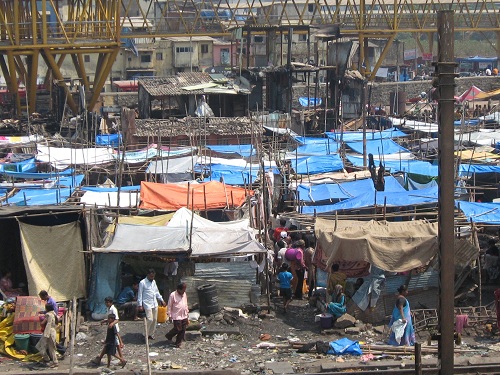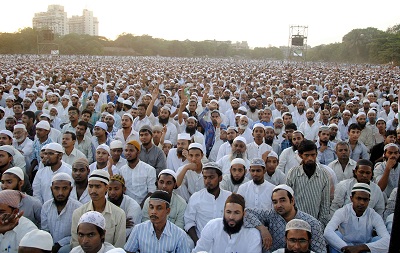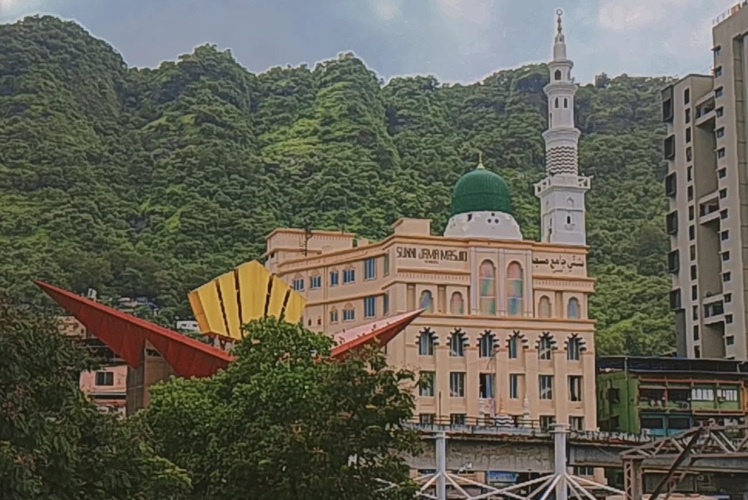By Abdulla Umer Khan,
When I read “Muslims have lowest living standards in India” I began to wonder do religious beliefs have any effect on one’s poverty? . Can a Muslim layman provide himself with same opportunities to earn his wealth?
I wouldn’t say Islam provides same number of opportunities but it provides equal number of opportunities to earn wealth. Great Muslim empires led the world with exceptional economic system, science, philosophy, culture and prosperity for a long time.
Many Muslims regard their relative poverty as something that in part at least, has been imposed upon them by the West. They see the distribution of wealth in the world as unjust. But how far Wealth distribution, economic policies of different political powers in different countries are responsible for widening gap of technological, industrial & economical growth in many Christian dominant countries when compared to Muslim dominant countries? Or is it because we in Islam give more importance for preparation of next life (Life after death) by conformance to Islamic morality and are not at all concerned with material gain in the current life?
Yes, material gain in current life is secondary to conformance of Islamic morality but economic peace and prosperity is equally important to maintain conformance of morality. Rather the reason for widening economic gap is more to do with complacency in research and development & Ignorance on Islamic core pillars i.e. perspective of Quran and Hadhees.
The economics of wealth generation
The level of income in an economy is related to the volume of goods and services produced i.e factors of production”: 1) Natural resources, 2) Physical resources and 3) Human resources.
Regarding 1st Factor, the Natural resources of Muslims society i.e Land and other valuable properties, its protection, utilization and acquiring donations are being handled by Waqf board as per Indian constitution. But little knowledge about the board and means to benefit from it are very negligible in Muslim societies.
Whereas 2nd Factor i.e. Physical resources are however are man-made. Thanks to so called Muslim scholars for terming almost every new technology as evil and keeping Muslim societies away from all the technology even Sound systems, Television even Computers at the beginning. While most were busy in further research and development and begin to dominate industrial revolution, many Muslim societies were busy in arguing whether it’s permissible as per sharia law or not!
When the capitalistic economy started to overpower the world, our scholars further continued to shut the door on providing alternative economic policies till late 21st century. Even today with excuse or ignorance on Halal & Haram (i.e. Permissible or not permissible in sharia law) many Muslims against Quran & Hadees either involved in every financial product which are driven by interest or barely managing to stay away by depriving themselves with financial liberty. Today a muslim layman is confused whether he can avail insurance or any savings schemes, Plan his and his children’s future by providing them with quality education or accumulating physical assets or resources for better productivity and income.
Apart from above mentioned we certainly lack direction from Muslim scholars (Religious and non religious) few other limitations on Human Resources i.e 3rd Factor. People need to be educated and trained in order to make use of the physical capital; Education is a form of investment in “human capital”.
As per recent figures from the International Labour Organization, published by the World Bank, indicates that in the Middle East and North Africa, women comprise 28% of the total labour force whereas the world average is 40%. As a group, these countries have the lowest female labour force participation rate in the world. One of the lowest figures is Saudi Arabia with 16%. The major economic impact of low female participation is due to the fact that one-income families have lower incomes than two income families. If these women were engaged in paid employment, increasing the labour force by 30%, it is not unreasonable to assume there would be an additional contribution to national income of around 10%.
Apart from above major reasons, there are other social evils crept in to the Muslim’s societies forming a vicious cycle of further economic degradation such as Lack of education, Unemployment, dowry, extravagant spending in marriages etc.
In Conclusion the ideas proposed for Muslims economic development in India in accordance with Sharia Law are mentioned below
1) Introduction of Islamic Economic system and Islamic banking in Muslim minority schools, to be able to prepare next generation establish Islamic
2) Organising events to motivate and attract budding entrepreneurs to present their business Ideas in a forum and thus attract investors
3) Effective utilisation of Gold as investment to bring in flow of funds for increased profits and economic opportunities
We are behind in the race not because we were pushed back rather we choose to be behind,
It’s not a time to argue small issues on rafadain, length of beard or length of one’s trouser, it’s time to wake up from ignorance, reunite and clear the difference in Technological, Industrial and Economic standards in accordance with sharia Law. And secure our seat in Jannah – Insha`Allah
(Abdulla Umer Khan is from Karimnager, Telangana and is presently working in Dubai as a sales & business development manager. He can be reached at abdullaumer@hotmail.com)







0 Comments